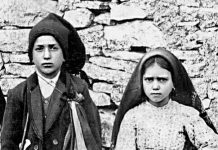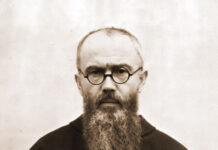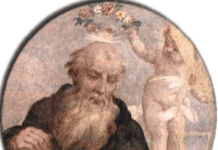According to St. Thomas Aquinas, “The most hopeful people in the world are the young and the drunk. The first because they have little experience of failures, and the second because they have succeeded in drowning theirs.”
Hope is the least talked about and most constant of all virtues. There is not a day passes that we do not experience hundreds of hopes. As the saying goes, Hope springs eternal. It is the easiest of virtues to acquire and the hardest to abandon. Hope concerns, most of all, not what we think or what we do, but what we desire. We think we shape our own desires, and sometimes we do; but sometimes we do not. God, our parents, and the world compete to influence what we should desire. Even the devil wants to give shape to our desires. The competition is fierce.
When Thomas Jefferson noted that the mass of mankind have always turned to religion, he was touching on hope as the generating power behind religion. The fear of everlasting death will always be trumped by the hope for everlasting life. What was the point of the life, death and resurrection of Jesus if not to give us hope that there is life and happiness beyond the grave? Even the most obstinate atheist hardly ever objects that the prayers of the faithful should be for him.
After the Resurrection, the march of Christianity was forward, never backward. This came from the virtue of Christian hope in the presence of a corrupt and dying Roman Empire. Today one senses that the flame of hope has been diminished. Padre Pio seemed to be addressing this question when he encouraged us to remember that a boat always must go forward or backward. If it drops its oars and remains motionless, the wind alone will blow it back.
So hope is allied to courage. It is the fuel our courage burns when we go up against those who hate even the idea of God. Saint John Climacus said of those enemies: “If they see our spirits cowering and trembling, they will make a more vigorous attack against us. They hesitate to grapple with a bold fighter.” Our hesitation comes only when we have run out of the fuel that hope supplies.
The more we have not, the more we hope. Hope flourishes best in our darkest hour, as when a starving child hopes for food. This is why greedy people who have too much seem not to hope. They have nothing left to hope for. Some kill themselves with boredom and debauchery. Then again, they might have a faint notion of other people’s hopes and give away their bounty that others may prosper. Jesus knew the rich suffer guilt for ill-gotten gains and hope to buy their way into heaven.
Aside from food and water, everything else can be taken from us and we can survive … everything but hope. This is why, where children are concerned, there is cruelty in telling them there is no God, that they have no immortal soul, and that sooner or later they will be food for worms. We cannot know how many children force-fed this dark philosophy have been wounded to the depths of the soul.
Hope is not a thing we may take or leave. It is required of us as a virtue that produces its own reward … peace of mind. If we willfully repudiate hope, we have made a pact with the devil. That is why Dante in his great poem had engraved over the gates of Hell, “Abandon hope, all ye who enter here.” G.K. Chesterton gave the most perfect expression of that sentiment. “If there be anywhere a man who has really lost hope, his face out of a whole crowd of men will strike us like a blow. He may hang himself or become Prime Minister; it matters nothing. The man is dead.”
When hope in a better world is dead, hope in a lesser world will die with it.












